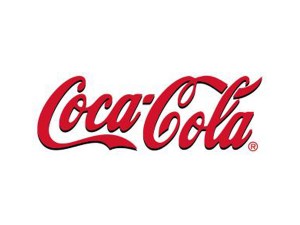Coke’s N. Luzon plant taps green energy
 SAN NICOLAS, Philippines—The Coca-Cola Bottlers Philippines Inc. (CCBPI) is shifting to a renewable source of energy, using biomass to produce steam needed for the plant’s bottle cleaning equipment.
SAN NICOLAS, Philippines—The Coca-Cola Bottlers Philippines Inc. (CCBPI) is shifting to a renewable source of energy, using biomass to produce steam needed for the plant’s bottle cleaning equipment.
The plant in Barangay 22 in San Nicolas, Ilocos Norte, is the latest of five CCBPI plants to use rice hull, dry leaves, used carton and other waste materials to fuel the machine that generates steam to heat the equipment, said Jaime Ancla, head of the Amertech Industrial Ventures Inc., the firm that operates the energy source for the plant.
Amertech also operates the biomass boiler of the CCBPI plant in San Fernando City in La Union, Ilagan, Isabela and Bulacan.
The CCBPI plant in Calasiao, Pangasinan, also uses biomass technology, but it is operated by another company.
A CCBPI presentation explained how the biomass boiler works: “The rice hull and other combustible biomass are gasified by introducing partial temperature to separate the flammable gases to the mass, then the gases are fired to the combustible chamber.”
Wally Panganiban, CCBPI press relations officer, said the technology is used in their Luzon plants because of the availability of rice hull.
Rice hull and straws are considered waste products by farmers.
Rice hull is not allowed to be thrown in dumps, so rice mills and farmers tend to burn them, Panganiban said.
The burned materials (carbonized rice hulls) are collected and processed as soil conditioner and medium for organic fertilizer, Ancla explained. These materials are given back to the farmers for free.
Arriane Tupaz, CCBPI environmental quality assurance specialist, said the biomass boiler is cleaner than low sulfur fuel oil (LSFO), which the company used in the past.
The biomass boiler is also cheaper, with the CCBPI spending P4.05 per kilogram of steam against the low sulfur fuel oil’s P4.43 per kilogram.
The 6.9-hectare CCBPI plant, established here in 1980, also has a waste water treatment facility that ensures water discharged into the Padsan River is clean.
“The sludge does not contain any hazardous chemical and can therefore be dumped as ordinary waste in dumps,” said Marla Miguel, CCBPI safety and environment officer.
To conserve water, what is used to rinse the bottles is stored in tanks and it is used in watering plants and in cleaning CCBPI facilities, Miguel said.
For all its efforts to be environment-friendly, CCBPI has been issued a five-year air pollution installation permit by the Environmental Management Bureau, which certifies that its operations comply with safety limits imposed by the government.
The permit was granted in 2010 and would expire in 2015.














